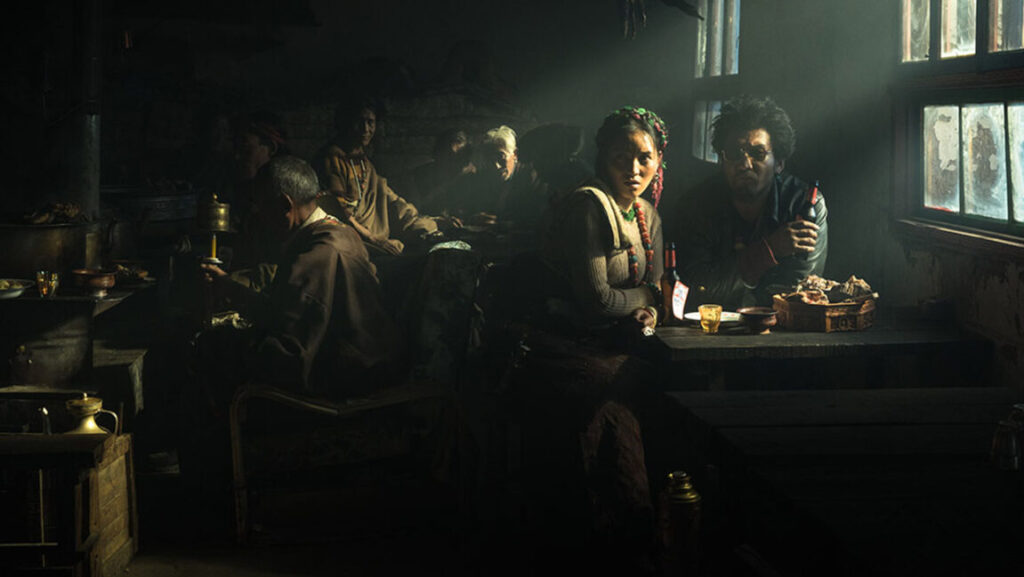The sixth feature film from Pema Tseden is a dream-inflected, almost Rashomon-like take on a road movie that uses the barren hills of the Kekexili plateau — which runs along Qinghai-Tibet — as if the landscape were analogous to the “Old West” of classic Hollywood movies. Balancing the silence and near desolation of the region’s environment with a lighter deadpan comedy, Jinpa tells of two men who are — coincidentally, or not — both named Jinpa. One (played by an actor who is also named Jinpa, and who Pema collaborated with before on 2015’s Tharlo) is a sardonic, worldly but spiritual truck driver who likes to listen to a Tibetan cover of “O sole mio”; the other Jinpa (Genden Phuntsok) is a traditional, sword-wielding member of the Khampa minority who’s out for vengeance against the man who killed his father. Tibetan-minority cinema is somewhat unique in the domestic Chinese landscape — highly textured and often genre-driven, it draws on the deep well of the Buddhist religion and philosophy to inform its image-making and the actions of its characters.
Jinpa recalls, for example, another recent Tibetan film, Soul on a String, in its shared style of the Western and subject matter of father-oriented revenge plots. (It’s not hard to see why Wong Kar-wai’s Jetone production company would sign up to finance a work possessed of such enigmatic and highly intentional poeticism.) The two Jinpas are clearly established as opposites to one another in a circular plot: one man is modern, the other looks backward; one is observant of religious practices, the other casts them aside; one is respectful of the life in all things, the other wishes to end somebody else’s. Yet the meaning of all this is somewhat unclear — as the film reconciles these elements in its daydreamy and trancelike closing scenes. Shot in academy ratio, Jinpa is full of striking images, deliberate framing, and otherwise bold decisions, from a wordless opening fifteen minutes to static shots that capture the light refracted in typically colorful Tibetan cloth and glass in beautiful ways, to hazy shifts in visual language that denote journeys into black-and-white memory or sepia-hued dream. In all these ways, Jinpa is more a film to be experienced for the sensation that the images offer the viewer than it is a narrative feature to be enjoyed for the comprehensive nature of its plot. The scene of a room with a lover that’s all color and shadow will impress plenty visually, even as the finer points of karmic dreamstates will likely leave one confused.
Published as part of New York Asian Film Festival 2019.


Comments are closed.